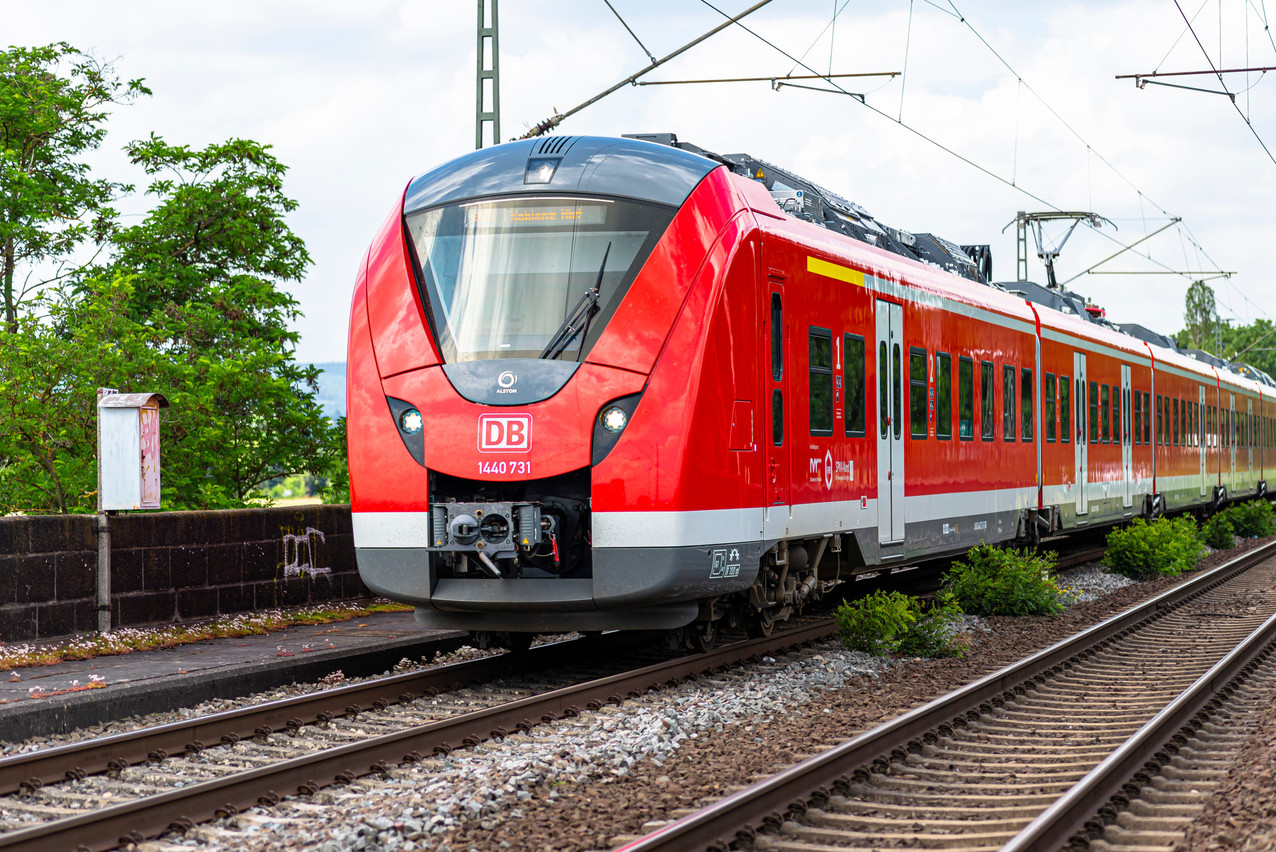For the German rail operator Deutsche Bahn, it’s no longer a question of contenting itself with small one-off interventions, but rather of launching a comprehensive and ambitious project aimed at thoroughly renovating 40 sections of track, totalling 4,200 km. As part of this, Germany recently presented a vast programme to modernise its rail network by 2030, which includes line closures and large-scale works on strategic routes--including some linking Luxembourg to Germany.
More specifically, the line on the right bank of the Rhine (Troisdorf-Koblenz) will undergo complete renovation between July and December 2026. The line on the left bank, linking Mainz, Koblenz, Bonn and Cologne, will undergo work from February to July 2028. These works will have a direct impact on the Koblenz-Cologne link and on journeys requiring a connection at Koblenz, in both directions. A replacement bus service will be provided for the duration of the disruption.
Amongst the other planned works, electrification of the Eifel line (Trier-Gerolstein-Cologne) will begin at the end of 2028. Other dams are also planned in the Cologne area in 2029, notably on the line between Hürth-Kalscheuren and Koblenz central station. In her parliamentary reply to Green MEP , minister for mobility and public works (DP) says that a “direct link between Luxembourg and Cologne via Trier and Gerolstein may be put in place when the work is completed.”
The minister also mentions other repercussions for Luxembourg, particularly with regard to rail freight and the movement of trains of goods. “This will mainly result in the cancellation of trains or rerouting, leading to longer journey times, additional costs that will not be borne by customers, and a reduction in the robustness of transport plans, with an increased risk of a deterioration in quality of service,” says Backes. “Furthermore, the coordination of work periods between the German and Luxembourg networks is crucial to guarantee the accessibility of the Luxembourg network to freight trains coming from or going to Germany.”
This article was originally published in .
